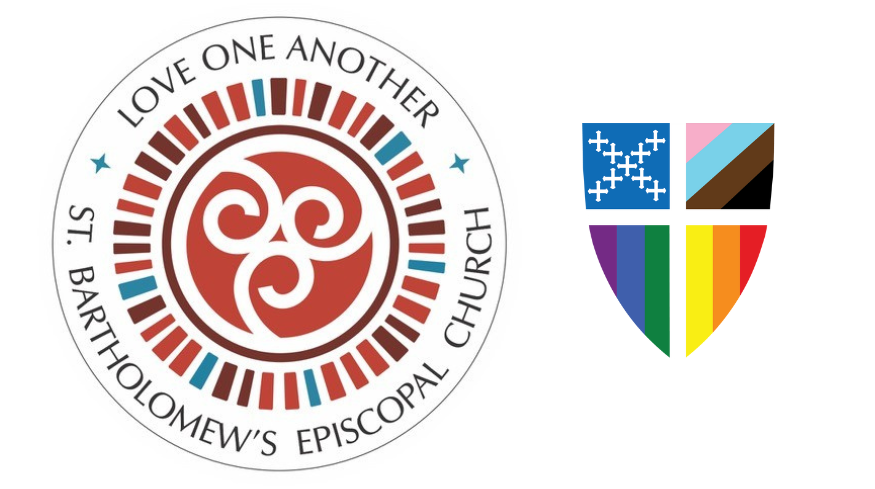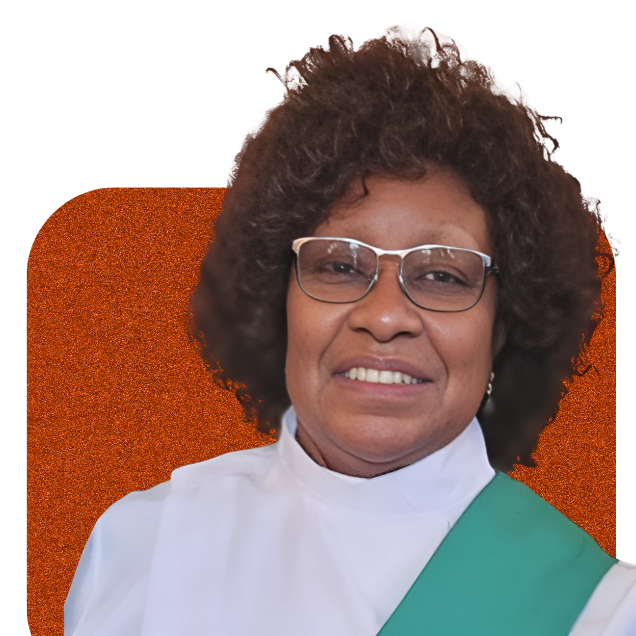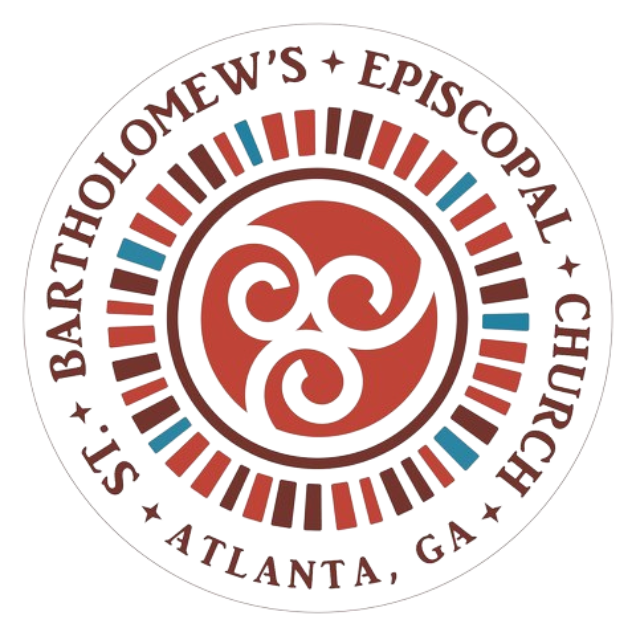Worship with Us
Service Times
Sundays: 8:00 AM | 10:30 AM | 6:00 PM
Compline
2nd & 4th Sundays: 8:00 PM
a calming nighttime prayer experience
In Person
1790 LaVista Road NE, Atlanta, GA 30329
Online
What's a St. Bart's Service Like?
We open our doors to all who seek God
Our rich liturgical tradition includes the use of vestments, music, and candles.
While we fall on the “high church” end liturgically, neither the facilities nor the people are formal. One is more likely to see casual clothes at Sunday services than suits and ties. The depth of our spiritual experience cannot be measured by our casual appearance. We invite you to visit us anytime to share this experience.
We believe that when we celebrate the Eucharist, Jesus is present with us.
UPCOMING EVENTS
Current Notable Events
Sunday Service: March 1st
8:00 AM Holy Eucharist – Nave
8:45 AM Breakfast – Parish Hall
9:15 AM Children’s Camp (K-5th grade) – Warden’s Hall
9:15 AM Youth Formation (6th-12th grade) – Warden’s Hall
9:30 AM Adult Formation – Meeting Room. Lenten Series—
"We Confess.”
Bishop Wright invites all to take part in this five-week Lenten teaching series. Every week includes a video meditation and study guide rooted in the ancient practice of confession. The series frames Lent not as a season of condemnation, but as an honest turning toward the healing, wholeness, and peace God longs for us to receive. Each session will include a discussion based on the
week's video and reflection guide.
10:30 AM Holy Eucharist – Nave
6:00 PM Holy Eucharist – Shalom Chapel
6:00 PM Prayers in the Wilderness: A Service of Prayer & Lament at
The Episcopal Church of the Epiphany (2089 Ponce De Leon Ave NE, Atlanta, GA 30307).
For more information, click here.
Parish Workday: Saturday, March 7th
SATURDAY MAR 7
Parish Workday
9:00 AM to 12:00 PM.
Please join us to clean up and
organize the kitchen and closets.
Snacks and coffee/drinks provided. Contact Cindi
Knighton at cyndk21@gmail.com if you have questions or would like to help.
Hunger Walk: Sunday, March 15th
Help our own Shirley Lee raise $5,000 to relieve hunger in Atlanta through the 2026 Hunger Walk to benefit Toco Hills Community Alliance (THCA). For more information about this event, including how to contribute, click here.
Call for Artists’ Stations of the Cross: Due March 22nd
In 2009, The Rev. Jim Curtis, former interim rector and now a
blessed memory, encouraged parishioners to try something new – Artists' Stations of the Cross. All are invited to sign up to create an artistic interpretation of 1 of the 14 Stations of the Cross. This liturgy is now in its 16th year and artists have used multimedia art, watercolor, sculpture, drawing, music, singing, instrumentals, poetry, etc. to reflect their personal Lenten journeys and encourage new insights among others.
ASC from 2020 are found here on YouTube and will give you an idea of what people were thinking at the beginning of
the pandemic. As we enter a new phase, and given everything that is happening in your life and in the world, select a Station to meditate on and see what the Spirit calls forth for you to share: art, music, or dance. 2026 Artists’
Please signup here: Stations of the Cross Sign-Up
All stations must be delivered to St. Bartholomew’s no later than Sunday, March 22nd.
Easter Flower & Music Dedications
Easter brings members and friends of St. Bartholomew’s the opportunity to thank God for the blessings and special people in their lives and to remember loved ones at this holy time of year, by making a special donation to the Music or Flower ministry or to both ministries.
A dedication from the donor
will be included in the Easter Day bulletin. You can use this form to provide your dedication.
A link to pay via Realm will
be included in your dedication confirmation email; you can use the printed form, write a check, and place in the offering plate; or you can submit a dedication, to admin@stbartsatlanta.org.
Any donation amount is welcomed.
Confirmation: Sunday, May 31st
Confirmation is the sacramental rite in which individuals make a mature commitment to Christ and receive strength from the Holy Spirit through prayer and
the laying on of hands by a bishop. It is a time of deepening faith, affirming
baptismal vows, and taking an active role in the church community. Whether you
were baptized as an infant, youth, or adult, confirmation is an opportunity to explore
your faith, understand Episcopal traditions, and embrace your calling to serve Christ and the Church.
To prepare for confirmation, Hazel+ and Mark+ will lead a five-session class on Mar. 15, Mar. 29; Apr. 19, May 3,
and May 17 at 9:15 a.m. (location TBD). This class in in preparation for the rite of confirmation to be performed at 4:00 PM on Sunday, May 31, 2026, at the Cathedral of St. Philip. We have a core group of young people who are participating, but confirmation is for everyone. If you've been considering it for a while, please join us. To indicate
interest or learn more, please email Mark+ at mark@stbartsatlanta.org .
Serve: The Altar Guild Needs You
Are you curious about the preparation for the services? Our ministry revolves around the care of eucharistic vessels, linens, and preparing the nave for all services. Whether you are a life-long Episcopalian or new to the church, the altar guild is a wonderful way to learn more about our faith and liturgy.
If you would like to learn more, please contact David Watkins at davidw48@comcast.net.
Offering: The Stewardship Tree Has Sprouted!
We’re excited to invite you to take part in a living expression of our shared faith, gifts, and service.
The Stewardship Tree is an interactive display that grows leaf by leaf as we name the many ways we give of ourselves to our church and the world.
Each leaf represents a beloved member of our community and the unique ways they offer their time, energy, and care.
Here’s how it works:
Simply write your name on one side of a leaf and list the ministries, activities, or acts of service you’re part of on the other.
As the weeks go by, our tree will grow with the richness of our collective offerings. Whether you serve on a ministry, bring snacks for coffee hour, volunteer at the food bank, offer prayers at home, or even bring your compost to the garden—every act of love counts. Let’s fill the branches
with gratitude, presence, and joy. Every leaf is a testament to how we embody the heart of St. Bart’s.
Come add your leaf!
Make Your 2026 Pledge
You can fulfill your pledge in three ways:
• Online: through onrealm.org
• By Check or Cash: mailed or brought to the church
• By Check mailed to: St. Bartholomew’s Episcopal Church,
2897 N Druid Hills Rd, #508, Atlanta, GA 30329
Thank you for your generosity and commitment to the life and mission of St. Batrholomew’s.
Please fill out a pledge card (found in the inner narthex).
St. Bartholomew's Calendar
1
8am Holy Eucharist
8:45am Breakfast
10:30am Holy Eucharist
6pm Holy Eurcharist
Show all
2
7:30pm Project Mankind
3
6:15pm Centering Prayer
6:30pm Zoom Book Study: Who Stole My Bible?
4
9am Ichiyo Ikebana Class (10AM)
10:30am Lectionary Bible Study, 10:30 a.m.
5
7:30pm Scouts
6
7
9am Altar & Flower Guild
9:30am Al Anon
10am Brotherhood of St. Bart's
5:30pm FOYERS Kickoff Dinner
Show all
8
8am Holy Eucharist
8:45am Breakfast
10:30am Holy Eucharist
6pm Holy Eurcharist
Show all
9
7:30pm Project Mankind
10
10am ECW monthly meeting
6:15pm Centering Prayer
6:30pm Zoom Book Study: Who Stole My Bible?
Show all
11
9am Ichiyo Ikebana Class (10AM)
10:30am Lectionary Bible Study, 10:30 a.m.
12
7:30pm Scouts
8pm Anti-Racism Working Group's Zoom Meeting
13
14
9am Altar & Flower Guild
9:30am Al Anon
15
8am Healing Eucharist
8:45am Breakfast
10:30am Healing Eucharist
6pm Healing Eurcharist
Show all
16
12:30pm Caregiver and Grief Group
7:30pm Project Mankind
17
6:15pm Centering Prayer
6:30pm Zoom Book Study: Who Stole My Bible?
18
9am Ichiyo Ikebana Class (10AM)
10:30am Lectionary Bible Study, 10:30 a.m.
19
7:30pm Scouts
20
21
9am Altar & Flower Guild
9am Brotherhood of St. Bartholomew's
9:30am Al Anon
Show all
22
8am Holy Eucharist
8:45am Breakfast
10:30am Holy Eucharist
6pm Holy Eurcharist
Show all
23
7:30pm Project Mankind
24
6:15pm Centering Prayer
6:30pm Zoom Book Study: Who Stole My Bible?
25
9am Ichiyo Ikebana Class (10AM)
10:30am Lectionary Bible Study, 10:30 a.m.
26
7:30pm Scouts
8pm Anti-Racism Working Group's Zoom Meeting
27
28
9am Altar & Flower Guild
9:30am Al Anon
Director of Faith Formation
and Ministry with Families

Prayer Changes Things
St. Bartholomew’s is a community who prays. Join us to pray.






